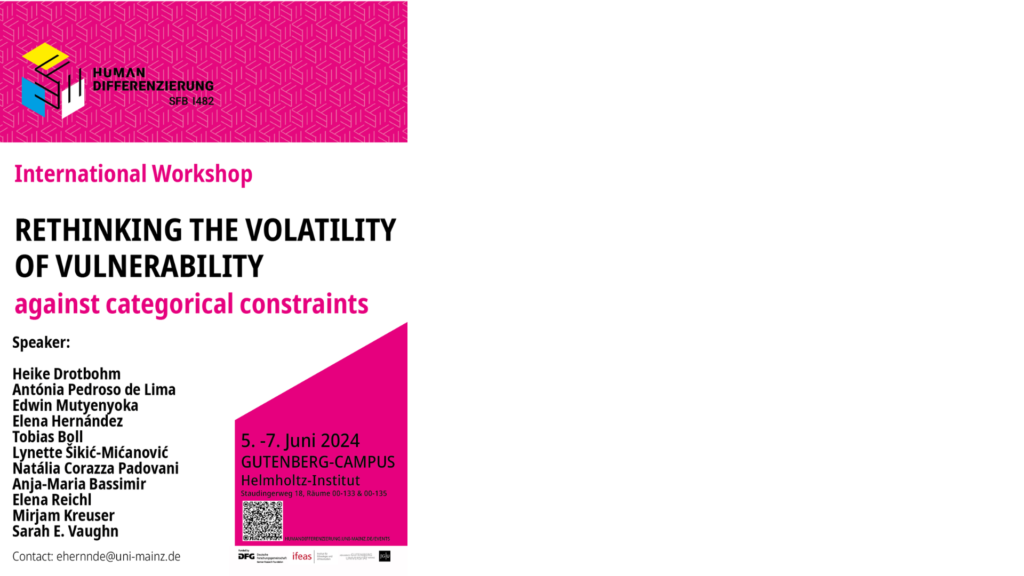Rethinking the volatility of vulnerability against categorical constraints
Although large swaths of the social sciences view the concept of vulnerability critically, it remains central to reflecting on how people differentiate each other and themselves from others. Sedimented in differentiating terms, ideas and policies – and often in emotional discourses and representations – perceptions of vulnerability express divided and stratified understandings of a person’s or a group’s exposure to life’s contingencies. As a combination of political, technical and moral forms of assessment, vulnerability is distributed unequally across gendered, generational and spatial lines. Often, it works as a culturalised shorthand for shared understandings of ‘deservingness’, referring to biographical framings, particular situations of exposure, or material and environmental threats. While some see the politics of vulnerability as potentially injurious and pathologising, supporting institutionalised forms of paternalistic governance and control, others perceive the notion as a constitutive feature of embodied relations – eventually reaching beyond the boundaries of the human – providing constitutive grounds for everyday understandings of relational justice. Against this background, current trends of a self-declared vulnerability can be seen as referring to antiracist or (dis)ability discourses confronting neoliberal expectations of productivity, but also as performances of virtue that push the notion into a depoliticised and individualised realm.
Recognising the rapidly changing contents and contours of this controversial notion, we will use this transdisciplinary workshop to inquire into the overlap between redistributive and recognising perspectives. We are particularly interested in the practices of differentiating categories that shed light on how vulnerability and the eligibility for care are enacted, stabilised and justified but also claimed, contested and rejected. This workshop brings together leading scholars from anthropology, history, sociology and theatre studies who discuss how and in which forms vulnerability comes into being, and how it is stabilised in various research fields. Further questions concentrate on the modes of communication, emotional groundings or material arrangements that are involved in assessing vulnerabilities. We also ask which positions, roles and categories arise from granting or denying the corresponding claims to care?
